Jet Engine Mechanic: The Job Description

Would you like to know what a jet engine mechanic does all day? In this blog post, we will take a look at the job description of a jet engine mechanic, and highlight some of the key tasks that they perform. We will also discuss the importance of jet engine mechanics, and explain why their work is so vital to aircraft safety. Stay tuned!
What Does a Jet Engine Mechanic Do
Jet engine mechanics are professionals who specialize in aviation maintenance and management of engines for aircrafts. As a jet engine mechanic, you’ll be responsible for performing complex services and inspections to ensure safety regulations are met in aviation operations. Depending on the type of aviation company you work for, you may be required to troubleshoot, repair or replace engine parts in an aircraft. Moreover, you’ll use specific tools and aviation equipment related to servicing engines safely and ensuring that all parts are operational and follow government standards. To make sure groups are kept safe, successful aviation mechanics must keep their knowledge current with aviation regulation updates along with documenting their work shift accordingly. Jet engine mechanics will also have the opportunity to work alongside other aviation specialists to maintain aircraft as a whole.
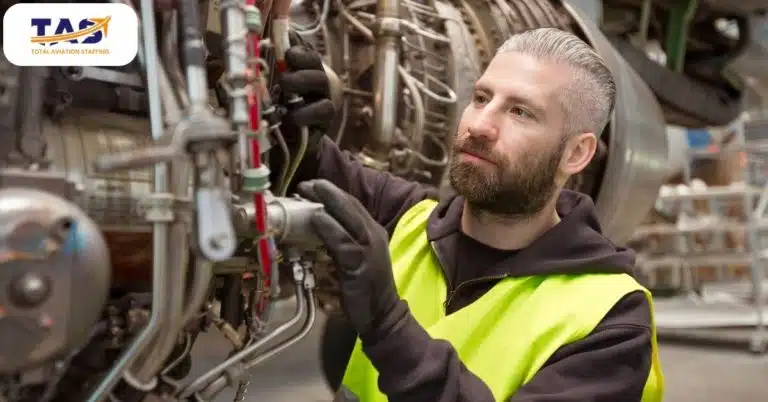
How to Become a Jet Engine Mechanic
To become a Jet Engine Mechanic, individuals must have an aviation-specific education and experience working with aviation systems. Many employers require that a Jet Engine Mechanic have an associate’s degree in aviation maintenance technology from a school accredited by the Federal Aviation Administration. Additional training such as advanced airframe and powerplant certificate or certification from the National Institute for Aviation Nondestructive Testing may also be required for some positions. Once their educational requirements are met, mechanics must pass both oral and written exams to obtain their aviation mechanic certificates. With these qualifications in place, future mechanics can then look for jobs with aviation businesses offering jet engine maintenance services. A successful applicant should be detail-oriented, possess great troubleshooting skills, work well under pressure, and understand how to use precision equipment. Most organizations require a background check before hiring a Jet Engine Mechanic to ensure they are qualified and trustworthy with working on aviation systems.
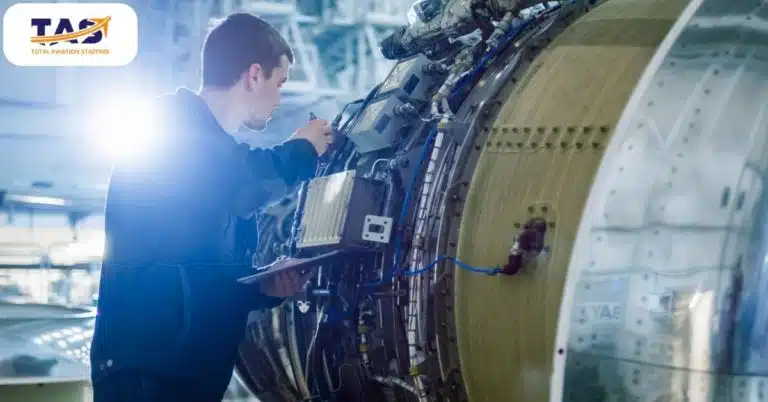
The Education and Training Needed to Be a Jet Engine Mechanic
Aspiring Jet Engine Mechanics must have an accredited aviation degree and have extensive experience working with aircraft systems. You should be familiar with specific tools, maintenance methods, safety regulations, and industry standards related to servicing engines. In addition, you will need to obtain both oral and written exams from the Federal Aviation Administration in order to receive your certification as a Jet Engine Mechanic. The Work Environment of a Jet Engine Mechanics typically work in the aviation field and can be found in hangars, airfields, or repair shops for aircraft maintenance companies. You will also be required to work outdoors depending on the job requirements and may need to lift heavy materials or parts when repairing or replacing engines.
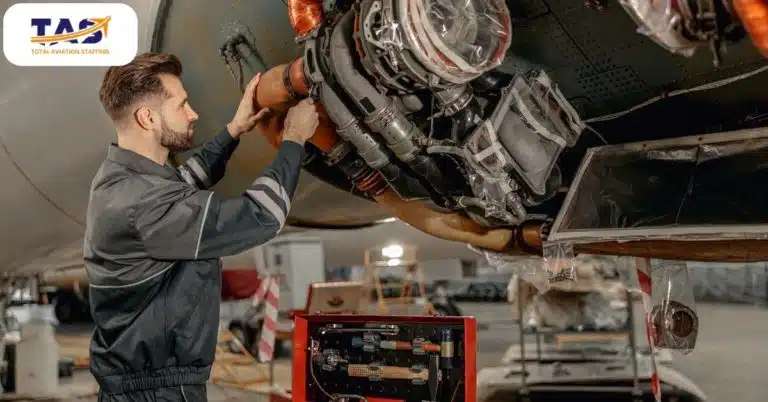
The Experience and Skills Required to Be a Jet Engine Mechanic
To be successful as a Jet Engine Mechanic, you must have the ability to think logically and troubleshoot complex mechanical problems. Excellent attention to detail is also necessary in order to ensure that all parts of the engine are up to safety standards. You should be able to work well under pressure and demonstrate organizational skill when updating maintenance records or scheduling inspections. Good interpersonal skills are also important for communicating with clients and other aviation teams. Being able to manage time well and work efficiently is essential for performing maintenance services in a timely manner. Additionally, those who are interested in this career should have excellent problem solving skills and be comfortable working with complex machinery. The Rewards of Working as a Jet Engine Mechanic Working as a Jet Engine Mechanic can be rewarding and provide the opportunity to work with advanced technology. You will also have the opportunity to work alongside other aviation specialists, such as aircraft designers or engineers. As an experienced mechanic you may even have the chance to become an instructor at certain aviation schools.
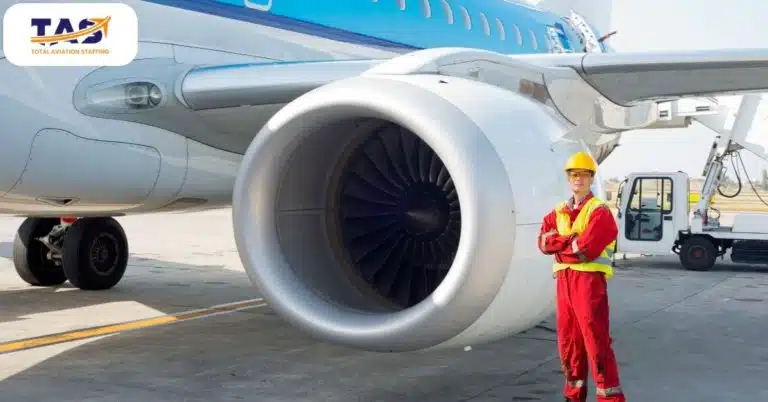
The Job Outlook for Jet Engine Mechanics
Jet engine mechanics are important players in aviation. As aviation grows, so does the demand for well-trained mechanics to diagnose and troubleshoot issues with jet engines. With job opportunities ranging from repair or maintenance shops, aviation organizations, airlines, and military aviation units, jet engine mechanics can find a place to work that best suit their skillset and ambition. Becoming a jet engine mechanic requires specialized training due to the complexity of mechanical systems in aviation. A background in aerospace engineering is beneficial but not always required as there are often apprenticeship programs available in aviation. Thanks to continued increases in air travel worldwide, the job outlook for jet engine mechanics is strong and stable. Those looking for an exciting career with wide prospects should consider becoming a certified aviation mechanic specializing in jet engines.
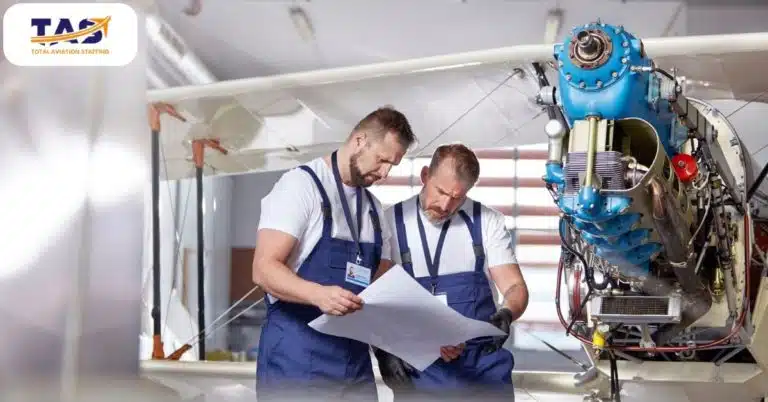
The Salary of a Jet Engine Mechanic
Working as a jet engine mechanic is an aviation career path with potential for professional growth and remuneration. The average salary of a jet engine mechanic ranges from around $32,184 to over $104,000 depending on experience, qualifications and location. Those with greater aviation industry experience are likely to command a higher salary than someone just starting out in the aviation sector. Jet engine mechanics should also anticipate receiving additional income related to overtime work and weekend shifts. With a passion for aviation and enthusiasm for problem-solving, experienced jet engine mechanics can look forward to the possibility of regular salaries along with additional income.
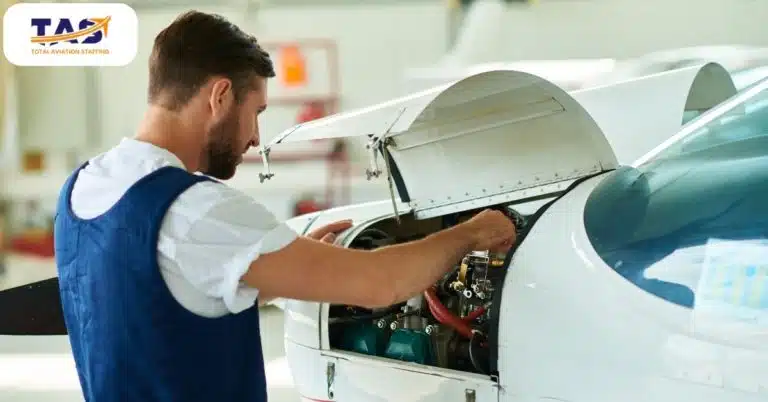
Related Jobs for Jet Engine Mechanics
Jet engine mechanics are part of a much larger network of aviation workers that work together to keep aircraft engines running. Related job roles in the aviation sector include Aircraft Electricians, Avionics Mechanics, and Aerospace Engineers. Jet engine mechanics with additional qualifications can also consider working as an Aviation Maintenance Inspector or even moving into leadership positions such as Maintenance Supervisors or Managers. Overall, the career of a Jet Engine Mechanic can be rewarding and open up potential for professional growth in the aviation industry. With continued increases in air travel worldwide, job prospects remain strong. Those with experience and qualifications should look forward to competitive salaries and additional income opportunities. Moreover, jet engine mechanics are part of a larger network of aviation professionals, offering potential to pursue related job roles. If you have a passion for aircraft technology and problem-solving, then consider launching your career as a Jet Engine Mechanic.
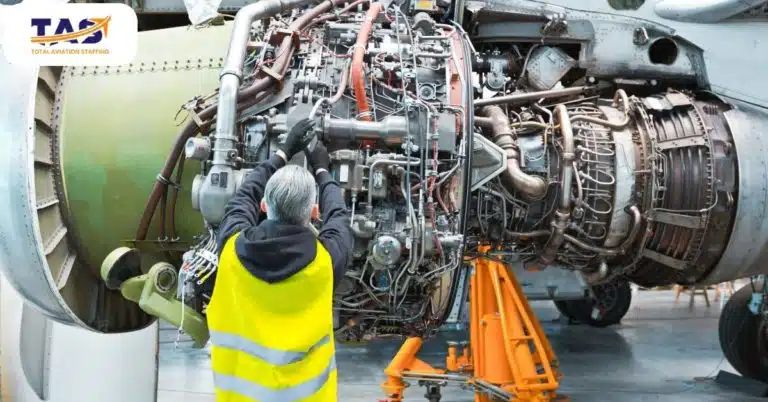
In conclusion
A career as a jet engine mechanic can be an exciting and fulfilling opportunity for those with a passion for aviation. With job opportunities ranging from repair or maintenance shops to airlines and military aviation units, jet engine mechanics can find the perfect place to work that suits their skillset and ambition. Thanks to increasing air travel worldwide, the job outlook for jet engine mechanics is strong and stable, with potential for professional growth and remuneration. With proper training and qualifications, jet engine mechanics can look forward to competitive salaries and the possibility of additional income. If you have a passion for aircraft technology and problem-solving, then consider launching your career as a Jet Engine Mechanic.
